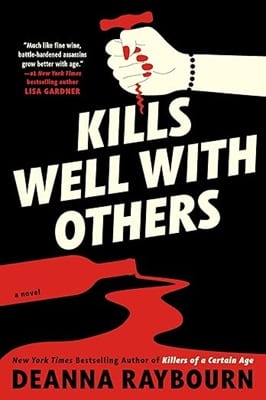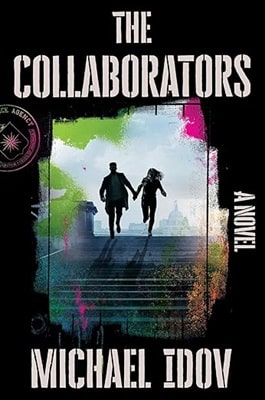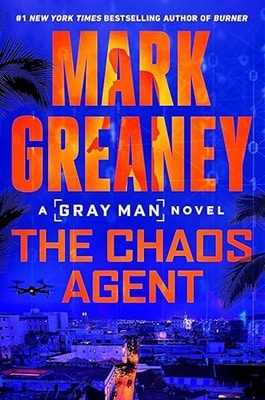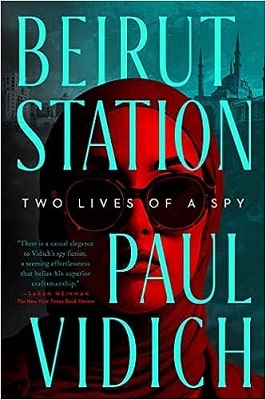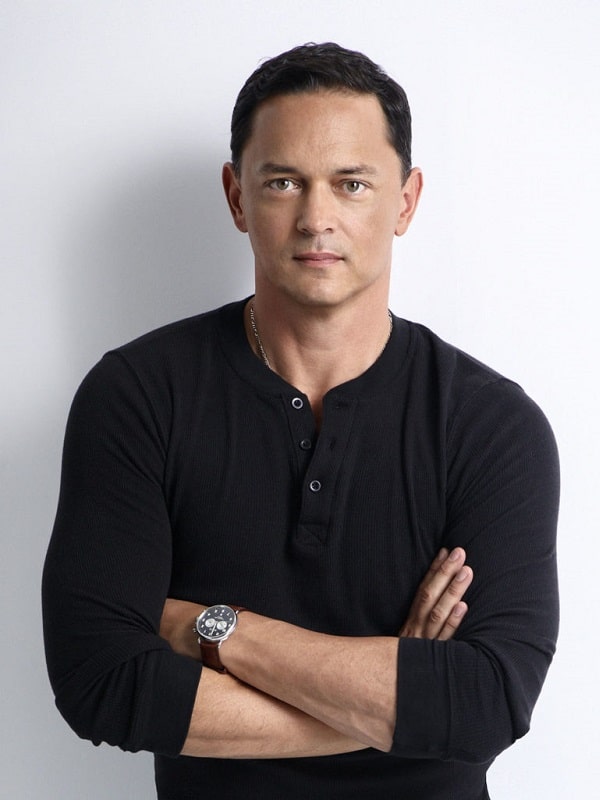
Mark Greaney is the #1 NYT bestselling author of BURNER, the 12th GRAY MAN novel. The Netflix production of THE GRAY MAN, starring Ryan Gosling and Chris Evans, was the #1 most popular movie on the streaming service in 2022. Mark has written or co-written seven Tom Clancy novels and is also the co-author of the 2019 military thriller, RED METAL, and the 2022 release, Armored. The Gray Man series also includes, SIERRA SIX, RELENTLESS, ONE MINUTE OUT, MISSION CRITICAL, AGENT IN PLACE, GUNMETAL GRAY, BACK BLAST, DEAD EYE, BALLISTIC, ON TARGET, and THE GRAY MAN.
Q: Can you share the inspiration behind your story’s concept, particularly the integration of AI and its darker implications?
Mark: I was watching a lot of TV about developing artificial intelligence. Then I read a few books about AI run amok. I was looking into the dark side of AI. Robotics, AI, and lethal autonomous weapons melted together. It was fascinating for me to write about. I am always looking for something different to write about. The idea of the private sector creating something dangerous was interesting to me.
Q: What are your thoughts on the dual nature of AI, considering its potential both for groundbreaking advancements and significant risks?
Mark: It can be used by the military or for cures to cancer. It depends on how it is used. I am fatalistic about it, knowing it is coming whether we want it to or not. I am nervous as I write about in the book. If the enemy does it and revolutionizes the way countries fight it will become a game changer. I read a line that said, ‘If a scenario cannot be anticipated, then we cannot test it.’ AI can act in ways they are not taught.
Q: Reflecting on modern warfare and AI’s role, how do you perceive AI’s capacity for judgment and morality in conflict scenarios?
Mark: Absolutely. AI does not have any judgement or morality. Now AI are basically large language models. Once in the real world there is no telling what might happen. They clobbered US pilots in simulators with the human pilot never getting a shot off. In the book, Cyrus, the AI agent, is aggressive. War game simulations have AI on the attack, to fight, and attack. This is also a vulnerability because it can make mistakes that will hurt it.
Q: Comparing AI to biological weapons, do you see a parallel in how nations approach these potentially dual-use technologies?
Mark: I do agree with that analogy. Some years ago, a bunch of Google employees threatened to quit because the company was working with the US military on object recognition to process drone feeds. All these employees got on their high horse and refused to work with the defense department. This killed the whole project. At the same time Google had tons of projects with Chinese firms. All of these are dual use, can be operational in the military.
Q: Considering the ethical debates surrounding AI and genetic engineering, where do you stand on the balance between innovation and ethical boundaries?
Mark: Yes. In some ways it is good, to eliminate diseases, but it would also be possible to get a Master Race. This is very concerning to me. It is coming down the pike, AI, one way or another. The US did put export controls on the chips that make high level AI and China cannot acquire them. Regulations will help. Everything I read is that the sophisticated AI are prone to making mistakes.
Q: What motivated you to preface your book with a quote from Albert Einstein, and how does it relate to the theme of AI and technology?
Mark: He was talking about the nuclear age. The leaders of the AI industry, the gate keepers that told Congress, they are scared about what is behind their own gates. They asked for regulations. But they also fought against some regulations that were in England. People asked if they could do it, but no one asked if they should do it.
Q: Your protagonist, Court, seems to struggle with the absence of action. Can you discuss his need for purpose and how it defines his character?
Mark: A little bit of a version of it. I played it up in other books more. He sees himself as someone that should be used for good not evil. I think he feels a little bit listless when he is not doing what is right to make the world a better place. He has this moral compass with right and wrong incredibly important to him.
Q: Can you delve into the complex dynamics between Zoya and Court, especially in terms of trust and vulnerability?
Mark: They have trust issues. Sometimes they feel betrayed. Court has a vulnerability but has let his guard down for Zoya. What is programmed into him is to go into flight if he senses any kind of deception from her.
Q: Facing the potential demise of main characters, how do you approach the decision to possibly write them out of the series?
Mark: I have not written the next book yet. I honestly do not know. I can kill any of my characters at some point.
Q: The intense autonomous robot and drone scenes were striking. What research went into creating these vivid and realistic scenarios?
Mark: I watched a lot of videos. Everything in this book is based on existing or emerging technology. There is no science fiction. The robot dogs with rifles on their backs exist. The drones that land on the roof is also real. The hexacopters that are remotely piloted and carry explosives we are seeing a ton of that in the Ukraine War. When building an action scene, I think of the enemy capabilities and the heroes’ capabilities.
Q: Without revealing too much, can you give any hints about the direction of the next book, following the impactful ending of this one?
Mark: I don’t look on it as a cliff-hanger. The entire story played out is resolved but in the last twenty-five pages is something new that came about. I had the idea while writing the middle of this book. There will be a wild ride in the next book.
I also have a book coming out in June titled Sentinel. It is the second book in the Josh Duffy series. This book takes place in Africa. Duffy is a diplomatic security agent. The series is sold to TV.
The Chaos Agent by Mark Greaney brings to life artificial intelligence, which takes center stage in this plot. Just as with other issues like biological weapons and cloning, Greaney talks about how AI can weaponize drones and robots.
The plot starts off quiet enough as Court and Zoya settle down together in Central America in hope of living a quiet life. But that comes to a quick end after Zoya is approached by an old contact who needs her to extract a Russian scientist from a deadly situation. To make matters worse, they are attacked by a team of professional assassins.
It seems that multibillionaire Anton Hinton is building a lethal autonomous weapon controlled by artificial intelligence. His reasoning is that he wants to bring some sanity to the world where human wars could be a thing of the past. Putting the pieces together, Court and Zoya realize that someone is killing the world’s leading experts on robotics and computers. Because he is afraid for his life, Hinton hires as his new chief of security, Court’s old teammate, Zack Hightower. Eventually, they all band together to stop this powerful AI computer, Cyrus for destroying the world.
The plot has nonstop action. The best Gray Man books are ones with the supporting cast of characters, which includes this one. Readers should take the plot as a word of warning as to what happens after AI is weaponized.

